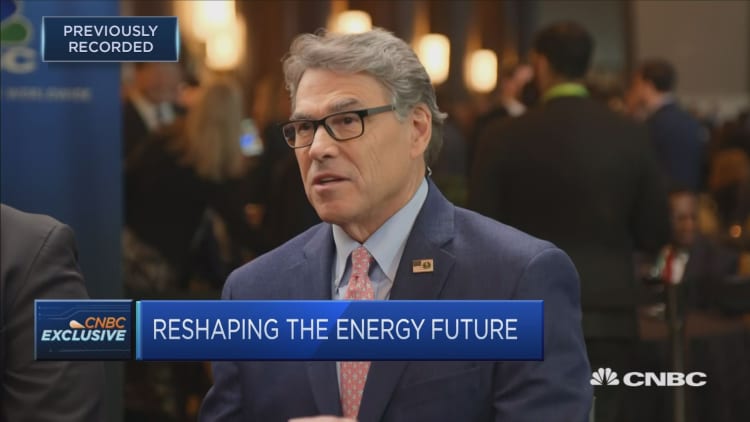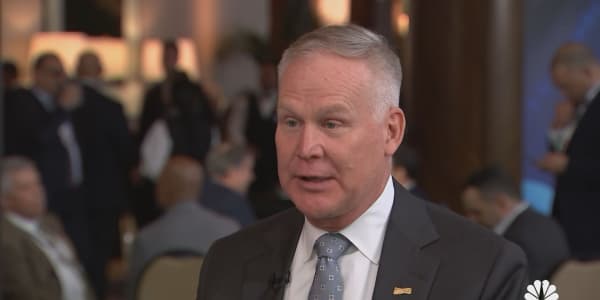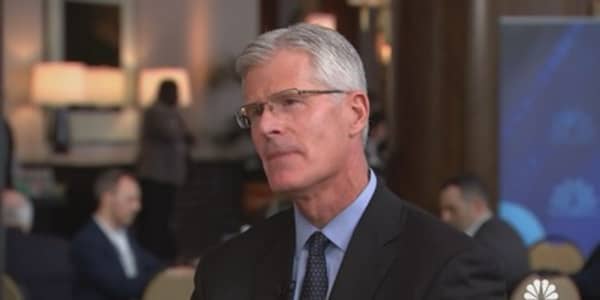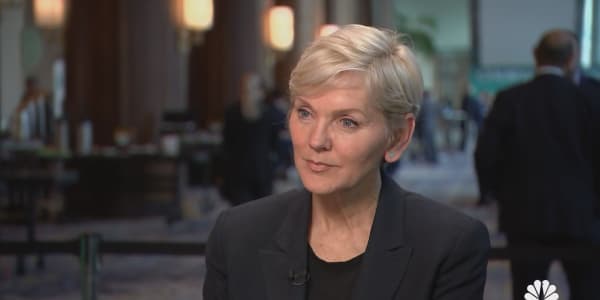
A high-ranking State Department official said a well-supplied world oil market helps the U.S. maintain, or even tighten, sanctions on both Iran and Venezuela without causing an oil price spike.
However, Brian Hook, the State Department Representative for Iran, would not comment on whether the U.S.will continue to make exceptions for buyers of Iran's oil.
That is one of the most critical questions in the global oil market. The U.S. will decide by May 8 whether to continue making exemptions for certain buyers of Iranian crude. In October it exempted eight countries from the sanctions that went into place last November.
Secretary of State Mike Pompeo reemphasized his policy of driving Iran's oil exports to "zero" when he spoke at the annual IHS Markit CERAWeek energy conference in Houston on Tuesday.
On Wednesday, Hook said the fact that forecasts show more supply than demand for 2019 should help the U.S. be more aggressive in its efforts to take Iran's exports to zero barrels. He said Iran is currently exporting from somewhere under 1 million to 1.1 million barrels a day.
"Last year when we did our waivers it was a tight and fragile market, but we were able to successfully balance our interests," he told reporters after an appearance before gathering of industry officials. "There are projections that supply will exceed demand, but those are projections. But we will continue to balance our national security and our economic interests," Hook said. The forecast that Hook referenced shows that supply would exceed demand globally this year by 400,000 barrels.
Industry officials are acutely interested in the amount of oil the U.S. can remove from the market since they were taken by surprise last October when the U.S. exempted certain buyers after threatening to remove all Iranian crude. That helped send oil prices tanking, and West Texas Intermediate lost more than 40 percent before bottoming in late December.
"We don't preview exemptions or nonexemptions," Hook said.
He said U.S. officials keep an eye on supply as it works to sanction both Iran and Venezuela. Elliot Abrams was brought into the State Department recently as the special representative for Venezuela.
"I work very closely with Elliott Abrams, and so what Secretary Pompeo has created is a team of diplomats that work very closely together so each has an awareness of what the other [is doing] so that we are able to execute our foreign policy, taking into account the mean factors that go into this. There's probably no industry that has more variables than the global oil market," Hook told reporters. "As I said, we track what's happening in Venezuela, Libya, Iraq and Kuwait, and we're working with the Saudis, and so that's going to continue. We're really pleased with how we've done so far."
On Tuesday, OPEC Secretary General Mohammed Barkindo said the Iran sanctions and the ongoing questions about the waivers are creating uncertainty as OPEC attempts to balance supply and demand in the oil market by curbing its output.
"It makes our job more difficult in focusing on the fundamentals, not to talk of our efforts to maintain balance and more challenging to sustain this balance going forward," he told reporters at CERAWeek.
Hook on Wednesday declined to comment on whether the administration will telegraph its waiver decision to OPEC.
"We don't get into our confidential discussions with countries," he told CNBC.






